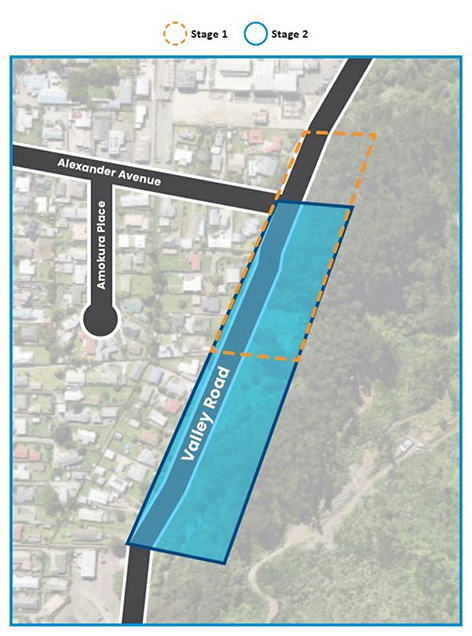Tree harvest on Valley Road

.
Whakatāne District Council will begin harvesting pine trees at two council-owned sites on Valley Road from next week.
The trees, planted approximately 45 years ago, are well overdue for harvest and are now at a size and age where they are posing a health and safety risk to road users, and, to a lesser extent, nearby residents and businesses.
Rolling road closures will be in place throughout the operation to ensure public safety during the harvest of the two blocks, located on the eastern side of Valley Road between Alexander Avenue and Arawa Road.
While access will remain available for residents and businesses, short periods of full road closure may be required when trees are being felled near the road.
Detours will be created via Goulstone Road, Arawa Road and Douglas Street throughout the operation, which is expected to be finished by the end of February.
Acting general manager community experience Alexandra Pickles said the council acknowledged the potential inconvenience to those accessing Valley Road.
“We’re committed to reducing the impact to residents, businesses and road users,” Mrs Pickles said.
“The staged approach for the road closures, enabling access to residents and businesses and mostly operating Monday to Friday are all designed to minimise disruption for the community.”
The council has worked closely with Te Rununga ō Ngāti Awa, which supports the removal of the trees.
Additionally, Heritage New Zealand has granted archaeological authority to protect a known terrace site within the project area.
Mrs Pickles said many factors had been taken into consideration for the operation, including the protection of local kiwi.
“We are working with Whakatāne Kiwi Trust and Tieke a Mua to identify kiwi in the area,” she said.
“Whakatāne Kiwi Trust has carried out an initial survey and identified some kiwi sign. As a result of this, a survey with a ‘kiwi dog’ has been arranged. This survey will take place before the operation and any kiwi found will be relocated.”
All marketable timber will be taken off-site for sale with the contractor, Tramrod, managing the sale of timber on behalf of the council.
Due to the age and condition of the trees, the marketable value was less, and the operation was expected to be cost-neutral.
The intention is to replant the sites with native species after the harvest operation is finished.
The landscape will look very different, particularly towards the top of the hillside. The upper part of the hillside will appear bare. The lower parts will still have pockets of trees, both exotic and native.
Wherever possible, all trees except for pine and eucalyptus will be preserved.
The council said it considered removing pest plants such as privet; however, these trees would be left to stabilise the hillside during the restoration phase.